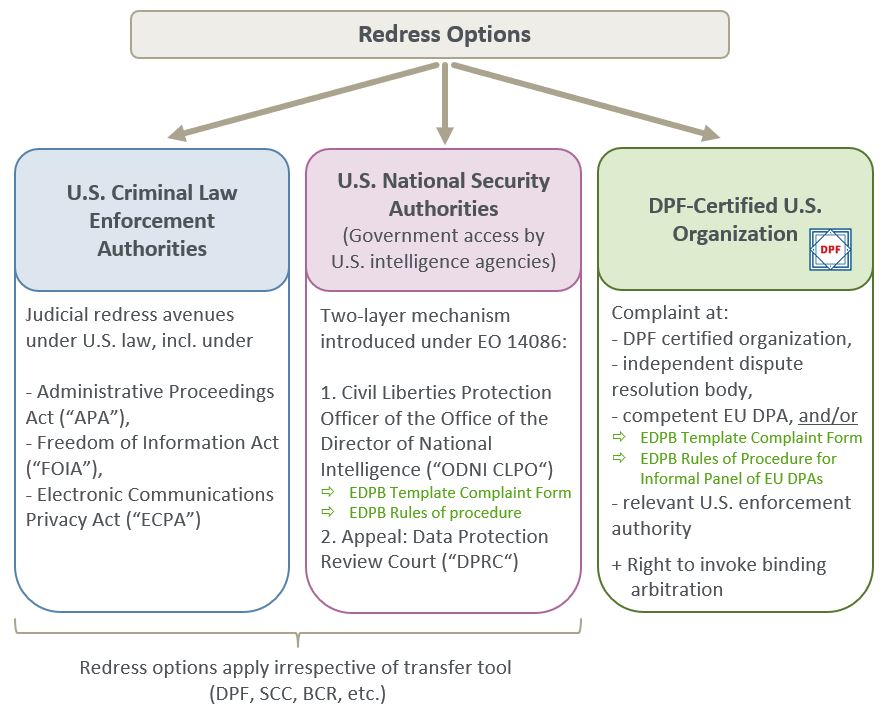Have you ever wondered how secure your personal data really is? With the growing number of data breaches and privacy violations, staying informed about new data‑privacy law enforcement cases is more crucial than ever.
These cases are not just legal battles; they are the frontline defense for your privacy. They shape how your personal information is protected in the digital world. This article will guide you through the latest developments in data privacy law enforcement, showing you the impact these cases have on your daily life.
Discover the surprising ways these laws affect you and what you can do to safeguard your information. Dive into the details and empower yourself with knowledge that could protect your most sensitive data.
Evolution Of Data-privacy Laws
Data-privacy lawshave changed over time. Early laws were simple. They focused on basic rights. Now, laws are more complex. They cover many areas. They protect personal data. They also safeguard online information. The rise of the internet made this essential.
Governments saw the need for stronger protection. They created new rules. These rules are strict. Companies must follow them. Violations can lead to penalties. Fines are often large. Complianceis a must for businesses.
Technology advances quickly. Laws try to keep pace. Updates happen regularly. This ensures better security. It also builds trust. Users feel safer online. Privacy is a key concern.
Recent Enforcement Cases
Many big companies broke data laws. They faced heavy fines. Facebook and Google had major privacy breaches. They did not protect user data. This upset many people. The laws aim to keep personal data safe. Companies must follow these rules. If not, they face big problems. Other firms also made mistakes. They paid large sums as penalties.
New trends show more focus on user consent. Companies must ask before using data. Some ignore this step. This leads to legal actions. Authorities now watch data sharing closely. Firms must stay careful. They need to update their policies. Using data without asking is risky. Many businesses learn this the hard way.
Key Legal Provisions
Individuals have the right to know how their data is used. They can ask for a copy of their personal data. Incorrect data can be fixed if needed. People can ask for their data to be removed. They have a say in how their data is shared. Protecting data is important for everyone. Privacy is a fundamental right. People should know about data breaches quickly. This helps keep their information safe.
Organizations must keep data safe and secure. They need to follow strict rules. Sharing data without permission is not allowed. Transparency is key for building trust. Companies must inform people about how data is used. They should have a plan for data breaches. Regular checks on data security are necessary. Organizations must respect people’s privacy. They need to educate employees about data safety.
Challenges In Enforcement
Sharing data between countries can be tough. Different places have different rules. This can cause confusion. Sometimes, laws clash with each other. It becomes hard to know which rules to follow. Companies often face fines if they make mistakes. They need to be very careful. Understanding each country’s rules is very important. It helps avoid these problems.
Technology changes fast. New tools come out all the time. Keeping up is not easy. Old systems may not support new laws. This can cause issues. Companies might need to upgrade their systems. This can be costly and time-consuming. Security measures must also be strong. Hackers look for weak spots. Protecting data is a big task. Companies must stay alert to new threats.
Impact On Organizations
New data-privacy laws change how companies work. They need to create clear rules for data use. Employees must know privacy rules. This helps to avoid big fines. Many businesses hire experts to help. These experts guide them on privacy standards. Training sessions can also help staff understand new rules. Staying updated with changes is key. Regular audits ensure compliance.
Managing risks is crucial for companies. They should identify data threats early. Using secure systems protects data from leaks. Encrypting data is a good practice. It adds a layer of security. Companies must also have a response plan. This helps if a data breach happens. Regular risk assessments keep data safe. Training staff on risks helps too.
Consumer Awareness
Public education helps people understand data privacy laws. Schools teach kids about online safety. Adults learn through seminars and workshops. These programs explain rights and responsibilities. They show how to protect personal information. Communities host events and discussions. Free materials are available online. Many resources offer easy-to-read guides. Aware citizens make safer choices. This protects everyone from data misuse.
Advocacy groups play a big role in raising awareness. They inform people about privacy rights. These groups work with the government. They push for better laws and policies. They also help people fight against privacy violations. Volunteers spread the word in communities. They organize campaigns and petitions. Their goal is to protect everyone’s personal data. Strong advocacy leads to safer digital spaces.
Future Of Data-privacy Enforcement
Data-privacy laws are changing fast. New rules come every year. These laws protect our personal data. Countries have their own rules. They want to keep our data safe. Companies must follow these rules. If not, they can face big fines. Understanding these rules is important. It helps keep data safe. Many people work to enforce these laws. They make sure everyone follows them. This keeps our information safe.
New technologies help protect our data. These tools make data safe. Encryption hides our information. Only the right people can see it. Firewalls block bad guys. They stop hackers from getting in. Companies use these tools. They want to keep your data private. Innovation is key. It helps keep up with new threats. As technology grows, so do the tools. They keep our data safe.

Frequently Asked Questions
What Is A Data-privacy Law Enforcement Case?
A data-privacy law enforcement case involves legal actions taken against entities that violate privacy regulations. These cases ensure compliance with laws like GDPR or CCPA. They aim to protect personal information from misuse and unauthorized access, promoting transparency and accountability in data handling practices.
Why Are Data-privacy Cases Important?
Data-privacy cases are crucial for safeguarding personal information. They hold violators accountable, ensuring adherence to privacy laws. These cases help build trust between consumers and companies, encouraging responsible data management. They also deter potential breaches, promoting a safer digital environment for everyone.
How Does New Data-privacy Law Affect Businesses?
New data-privacy laws impose stricter regulations on businesses. They require enhanced security measures to protect consumer data. Companies must ensure compliance to avoid penalties. These laws also necessitate transparency in data collection and usage, impacting how businesses handle and store personal information.
What Are Common Violations In Data-privacy Cases?
Common violations include unauthorized data access, inadequate security measures, and failure to obtain consent. Companies may also breach privacy laws by mishandling personal information or not notifying users of data breaches. These violations can lead to legal repercussions and damage to reputation.
Conclusion
Data-privacy laws are vital in today’s digital age. New enforcement cases highlight their importance. They remind companies to handle data responsibly. Protecting user privacy is now a priority. Businesses must adapt to stay compliant. This ensures trust and security for all users.
Ignoring these laws can lead to penalties. It’s crucial for companies to keep informed. Awareness helps in making better decisions. As privacy concerns grow, vigilance becomes essential. Staying updated benefits both businesses and consumers. Embrace these changes for a safer digital environment.
Read More:
- Global Supply‑Chain Disruption Alerts: Navigating the Chaos
- Smart Grid Pilot Program Launches: Revolutionizing Energy Use
- Next‑Gen Renewable Energy Storage Updates: Breaking Innovations
- Us Midterm Election Impact Analysis: Key Takeaways & Trends
- Mental‑Health Teletherapy Adoption Rates: A Rising Trend
- Ethereum Shanghai Upgrade Analysis: Unveiling Key Insights
- German Election Polling Analysis: Insights and Key Trends
- Bitcoin ETF Approval Timeline: Navigating the Future

